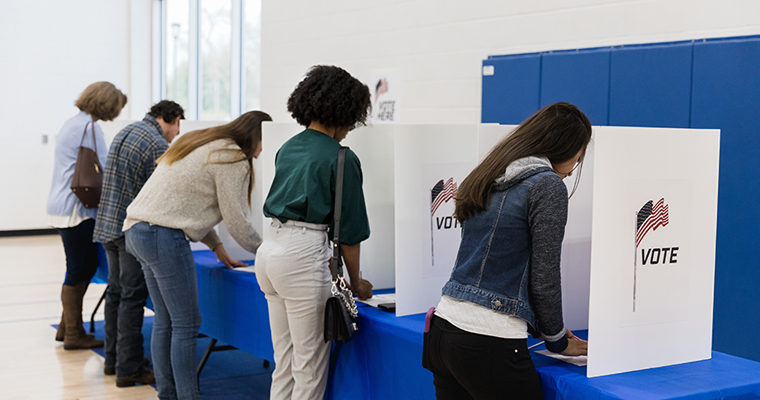- Home
- News
- Recent News
- UMass Boston Prof. Releases New Study on Voting Ha
UMass Boston Prof. Releases New Study on Voting Habits of Religiously Unaffiliated People
New Study Analyzes Voting Habits of People Who Identify as Atheists and Agnostics, Other Kinds of Religiously Unaffiliated People

“ This study shows that religiously unaffiliated people are not a monolithic group when it comes to voting. ”
Religious institutions have long been important places for political participation in the United States, especially for voter mobilization. But today almost a third of Americans do not identify with any particular religious group. Exit polls from recent elections indicated that the unaffiliated may not be turning out to vote as often as a result, but a new UMass Boston study argues that these polls might miss key details about this large and diverse community.
Instead of exit polls, this study used data from the Cooperative Election Study (CES), which surveyed over 100,000 respondents across four election years and matched survey respondents to validated records of voter turnout to evaluate whether and how respondents voted in each election.
According to the study, recently published in the journal Sociology of Religion, the large group of religiously unaffiliated Americans is divided in its voter turnout. Analyzing CES data from four Presidential election years, the study finds that:
- People who identified as simply “nothing in particular” for their religious group were less likely to have a validated voter turnout record than people who reported a religious affiliation.
- But self-identified atheists and agnostics were equally, or even more likely to have a validated turnout record. In the 2020 Presidential election sample, for example, the study estimates these groups were about one-third more likely to have a validated voter turnout record than religiously affiliated respondents.
- Atheists and agnostics were also more likely to have a record of voting by mail, absentee, or some other method not at a conventional polling place. Expanded voting access may particularly benefit these groups.
- The unaffiliated people in the study with the lowest likelihood of a validated turnout record were people who reported attending religious services the most often – the opposite of most work arguing that deeper bonds to a faith community foster political participation.
This finding challenges the common conclusion that religiously unaffiliated people are less likely to vote than religiously affiliated people.
"This study shows that religiously unaffiliated people are not a monolithic group when it comes to voting," said Dr. Evan Stewart, assistant professor of sociology at UMass Boston and the author of the study. “More importantly, it shows that our conventional wisdom about the things that foster community engagement may not work the same way for everyone.”
The study's findings have important implications for political campaigns and policymakers, especially as more groups are trying to reach the growing population of religiously unaffiliated voters.
